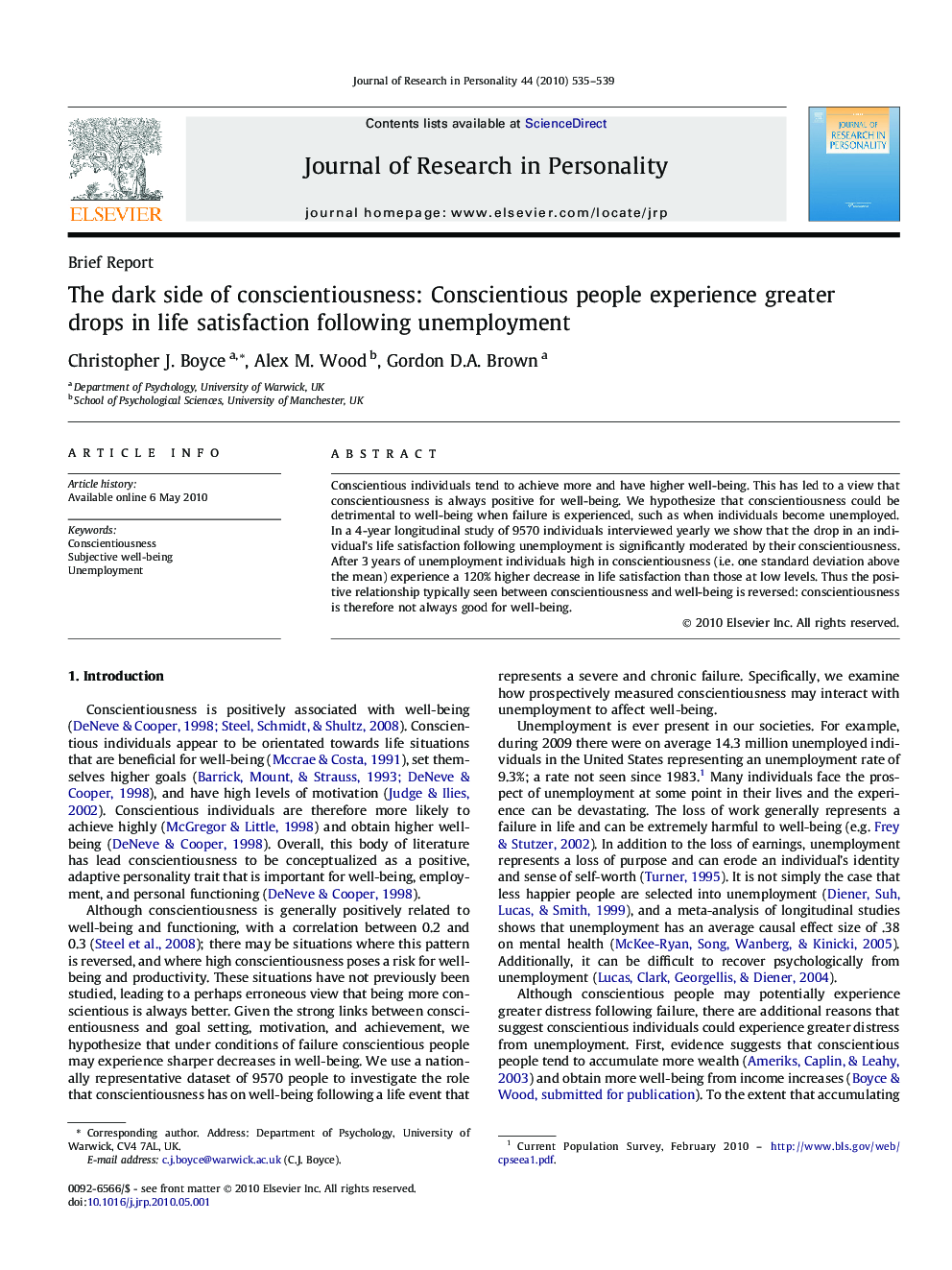| Article ID | Journal | Published Year | Pages | File Type |
|---|---|---|---|---|
| 951427 | Journal of Research in Personality | 2010 | 5 Pages |
Conscientious individuals tend to achieve more and have higher well-being. This has led to a view that conscientiousness is always positive for well-being. We hypothesize that conscientiousness could be detrimental to well-being when failure is experienced, such as when individuals become unemployed. In a 4-year longitudinal study of 9570 individuals interviewed yearly we show that the drop in an individual’s life satisfaction following unemployment is significantly moderated by their conscientiousness. After 3 years of unemployment individuals high in conscientiousness (i.e. one standard deviation above the mean) experience a 120% higher decrease in life satisfaction than those at low levels. Thus the positive relationship typically seen between conscientiousness and well-being is reversed: conscientiousness is therefore not always good for well-being.
